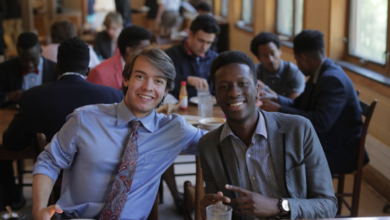Understanding KABA Discrimination: The Case of College Prosecutor and Real Estate in the Korean Community

KABA discrimination college prosecutor real estate Korean focuses on a serious issue affecting the Korean community. KABA stands for Korean American Bar Association, and discrimination can happen when people are treated unfairly because of their race or background. This issue became more noticeable when a college prosecutor faced allegations of discrimination related to a real estate case involving Koreans.
The story highlights how discrimination can appear in many places, including schools and businesses. When someone feels discriminated against, it can lead to feelings of anger and sadness. Understanding KABA discrimination is essential for everyone, as it affects how communities interact and thrive together.
The Background of the Case
The kaba discrimination college prosecutor real estate korean case started when the college prosecutor was accused of treating Korean individuals unfairly in a real estate matter. Many people in the Korean community were upset about this situation. They felt that the prosecutor’s actions showed a lack of respect for their culture and needs.
This case has raised questions about how legal professionals treat different communities. Discrimination can happen when there is a misunderstanding or bias. It is vital to look closely at these cases to ensure everyone is treated fairly. The incident made many in the Korean community speak out against discrimination and demand justice.
Key Points of the Background
- What Happened: Allegations of discrimination against a college prosecutor.
- Community Impact: The Korean community felt disrespected and hurt.
- Importance of Fair Treatment: Everyone deserves to be treated equally, regardless of background.
How Discrimination Affects Communities
Discrimination, like that seen in the kaba discrimination college prosecutor real estate korean case, can harm entire communities. When people feel targeted or unfairly treated, they may withdraw from participating in community events. This can lead to a lack of trust among community members and create divisions.
Moreover, discrimination can also affect people’s mental health. Those who experience discrimination may feel anxious or depressed. It is essential to promote understanding and empathy to overcome these feelings. Communities can work together to create an environment where everyone feels valued and respected.
Effects of Discrimination on the Community
- Loss of Trust: Discrimination can cause people to distrust each other.
- Withdrawal: Those affected may stop participating in community events.
- Mental Health Issues: Feelings of sadness or anxiety may arise from discrimination.
Steps Towards Change and Awareness
To combat issues like the kaba discrimination college prosecutor real estate korean case, communities need to take action. Awareness is the first step. Educating people about discrimination and its effects can help reduce bias. Schools, local organizations, and community leaders can work together to create programs that promote understanding.
Additionally, it’s crucial for legal systems to address discrimination. When cases arise, they should be treated seriously. Taking a stand against discrimination can help build a stronger, more united community. Every person deserves a fair chance, and it’s up to everyone to work together to make that happen.
Actions for Awareness and Change
- Education Programs: Create workshops and seminars about discrimination.
- Community Involvement: Encourage participation in events promoting unity.
- Support Systems: Offer resources for those affected by discrimination.
Conclusion
The kaba discrimination college prosecutor real estate korean case serves as an important reminder of the ongoing fight against discrimination. It highlights the need for awareness, education, and support within communities. By coming together and addressing these issues, we can create a world where everyone feels safe and respected.
Every person’s voice matters, and working towards equality is a goal we can all strive for. Let’s ensure that discrimination has no place in our communities and stand together for fairness and understanding.
FAQs
Q: What does KABA stand for?
A: KABA stands for the Korean American Bar Association.
Q: What was the discrimination case about?
A: The case involved allegations against a college prosecutor for unfair treatment of Koreans in a real estate matter.
Q: How does discrimination affect communities?
A: Discrimination can cause mistrust, withdrawal from community activities, and mental health issues.
Q: Why is education important in combating discrimination?
A: Education helps people understand discrimination and promotes empathy, reducing bias.
Q: What can communities do to support those affected by discrimination?
A: Communities can create awareness programs and offer support resources.
Q: How can legal systems help in discrimination cases?
A: Legal systems should take discrimination cases seriously and address them appropriately to promote fairness.



